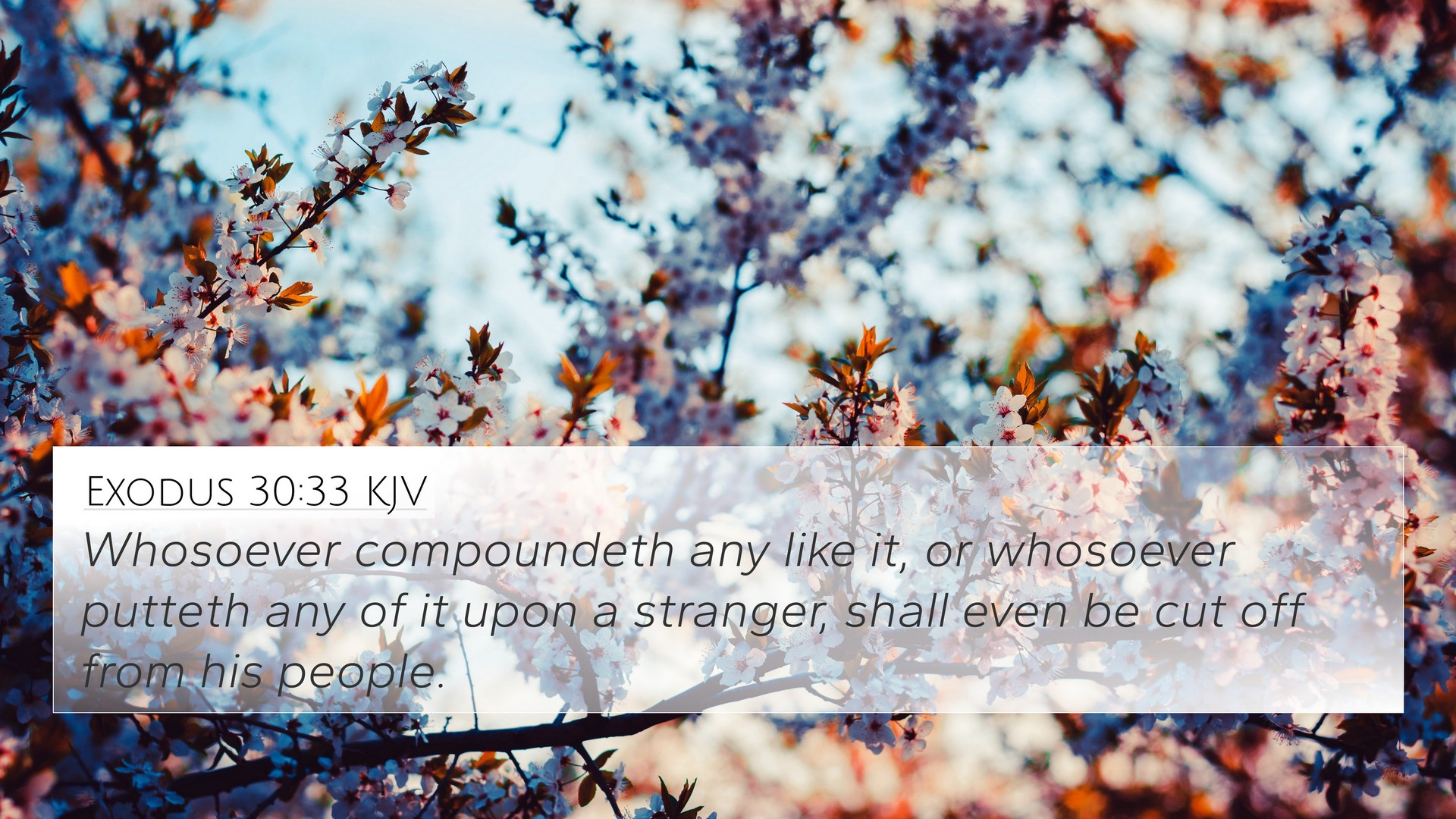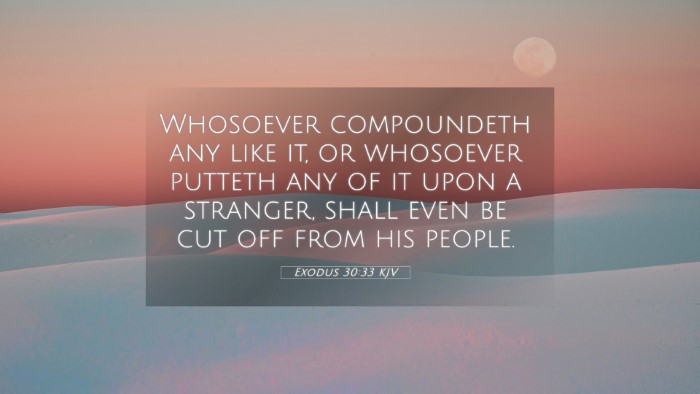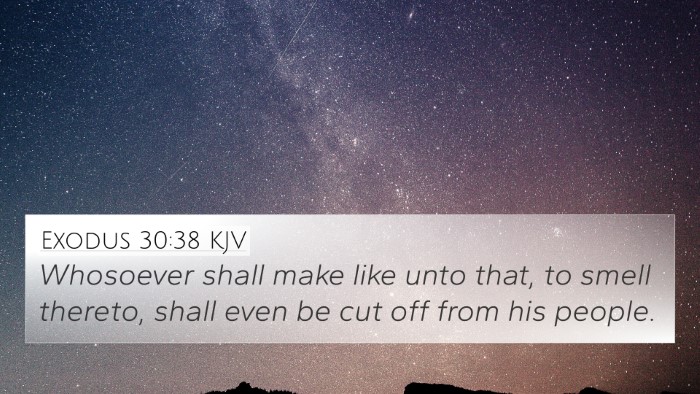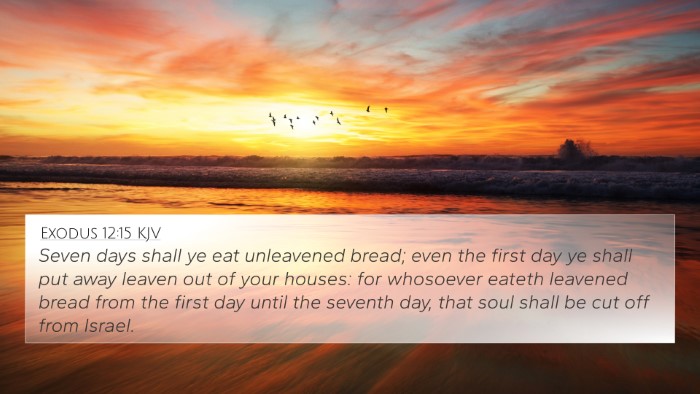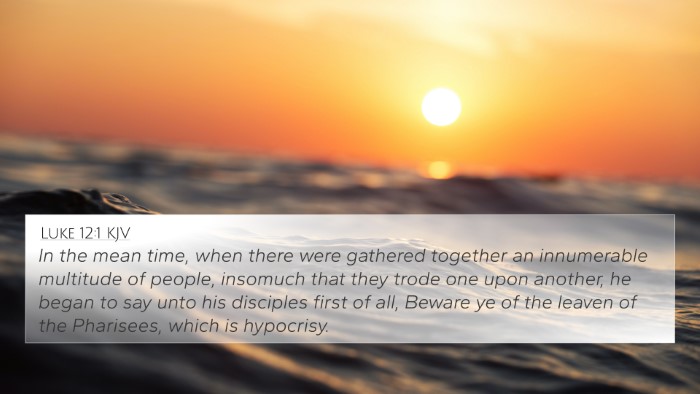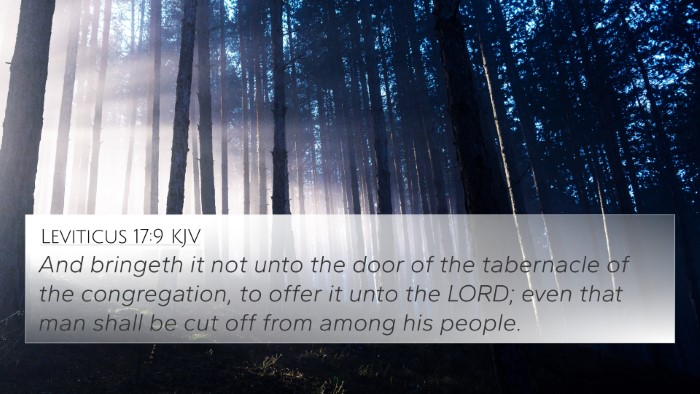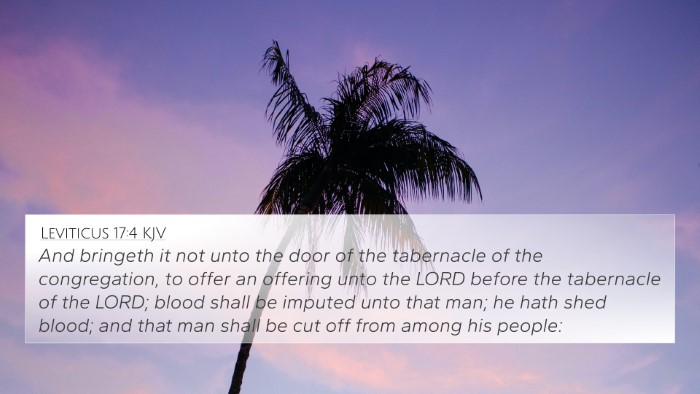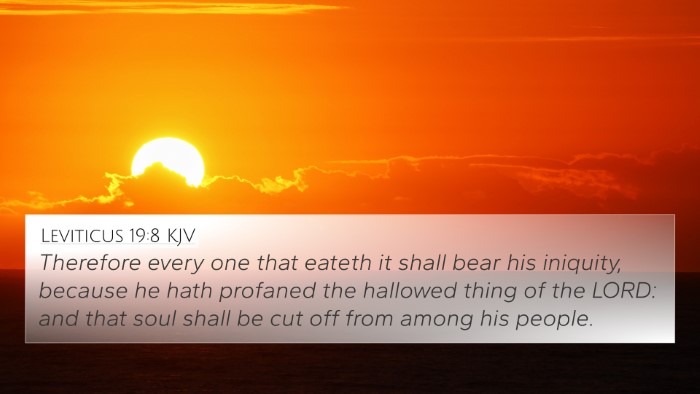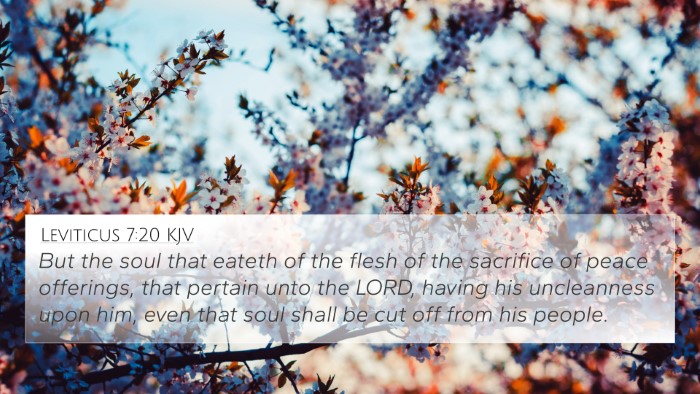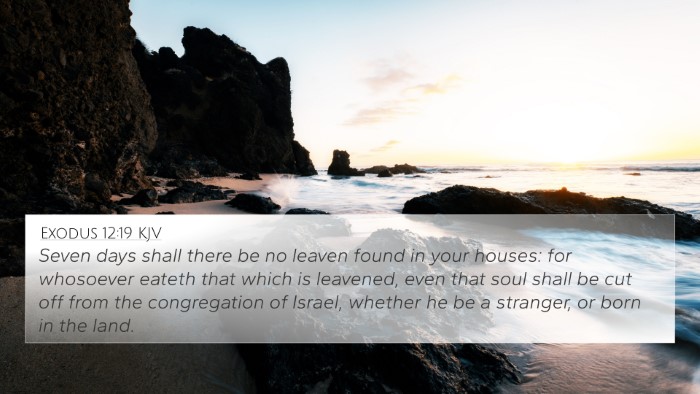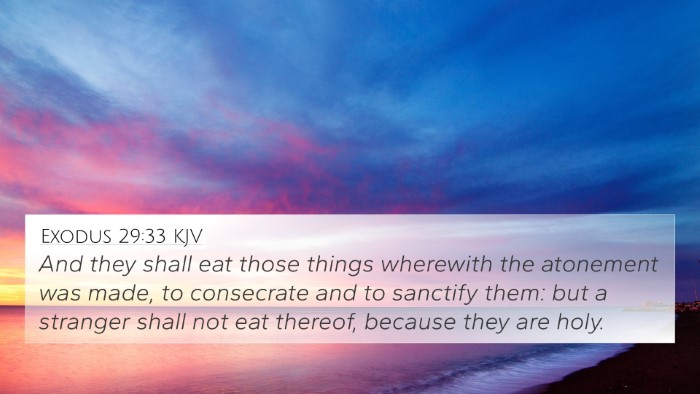Understanding Exodus 30:33
Exodus 30:33 is a verse that deals with the prohibition against unauthorized use of the sacred holy anointing oil. This verse serves as a reminder of the sanctity of God’s holy things and the importance of adhering to divine commands regarding their use.
Meaning and Interpretation
This verse explores several vital themes: the sacredness of anointing oil, the divine principle of holiness, and the severe consequences of misuse. Let us delve into the insights from prominent public domain commentaries.
Matthew Henry's Commentary Insight
Matthew Henry emphasizes the significance of the anointing oil as a representation of God's presence and blessing. He points out that this oil was specifically designed for consecration purposes, used to sanctify the priests and elements within the tabernacle.
- The oil is made for divine use, distinct from common or secular purposes.
- The command signifies a strong warning to not mock or dilute what God has set apart.
- This prohibition stands to provoke respect and reverence towards God's instituted worship and service.
Albert Barnes' Commentary Insight
Albert Barnes adds that the anointing oil symbolizes the special empowerment by the Holy Spirit. The misuse of this sacred oil equates to a grave offense against God’s design for worship and service.
- He notes that the blending of this holy oil with common elements is equivalent to tampering with the divine call.
- Barnes emphasizes that God demands a clear distinction between the holy and the profane, urging believers to recognize and uphold this divide in all matters concerning worship.
Adam Clarke's Commentary Insight
Adam Clarke elaborates on the consequences specified in this verse for those who misuse the anointing oil. He indicates that such actions would render one liable to severe punishment and exclusion from God’s presence.
- Clarke ties this to a broader theme of obedience, illustrating that neglecting God’s commands can lead to divine disfavor.
- He asserts that the holy anointing oil serves both a ceremonial and a functioning purpose, delineating how the priests and sacred objects were to be treated.
Cross-References and Related Verses
Understanding Exodus 30:33 involves exploring several related verses that reinforce its themes of sanctity and holiness. The following verses serve as cross-references:
- Leviticus 10:1-3 - The story of Nadab and Abihu highlights the danger of offering unauthorized fire before the Lord.
- 1 Samuel 16:13 - The anointing of David illustrates the significance of God’s choice and empowerment through oil.
- James 5:14 - Anointing the sick with oil emphasizes the oil's connection to divine healing and prayer.
- Psalms 23:5 - David writes of being anointed with oil, which signifies the blessings and provisions from God.
- Matthew 26:6-13 - The anointing of Jesus affirms the sacredness of anointing and its reverence in worship.
- Hebrews 10:28 - This verse warns against willfully disobeying God’s commands, echoing the seriousness of Exodus 30:33.
- 1 Corinthians 6:19-20 - Paul reminds believers that their bodies are temples of the Holy Spirit, paralleling the sacredness expressed in Exodus 30:33.
Thematic Connections
Through these connections, we see the broader narrative of how God’s prescribed holiness permeates through both the Old and New Testament. The sacredness of the holy anointing oil spans into themes of:
- Divine Selection: God anoints those He has chosen for tasks.
- Consecration: Objects and individuals set apart for God’s work must not be treated lightly.
- Warning Against Irreverence: God’s commands are not just guidelines but are vital for maintaining proper worship.
Using Bible Cross-References
To further understand the implications of Exodus 30:33, one can employ tools for Bible cross-referencing. These tools can include:
- Bible Concordance: Useful for finding terms and verses related to specific themes.
- Bible Reference Resources: Guides that help in linking scriptures for deeper study.
- Cross-Reference Bible Study: A methodical approach to examine themes across different texts.
Final Thoughts
Exodus 30:33 serves as a powerful reminder of the necessity of reverence in relation to Holy things. The insights gathered from the commentaries of Matthew Henry, Albert Barnes, and Adam Clarke cultivate a deeper understanding of the sacredness attributed to God's commandments. By embracing the connections between this verse and others, believers can enhance their spiritual journey and cultivate a deeper respect for divine statutes.
